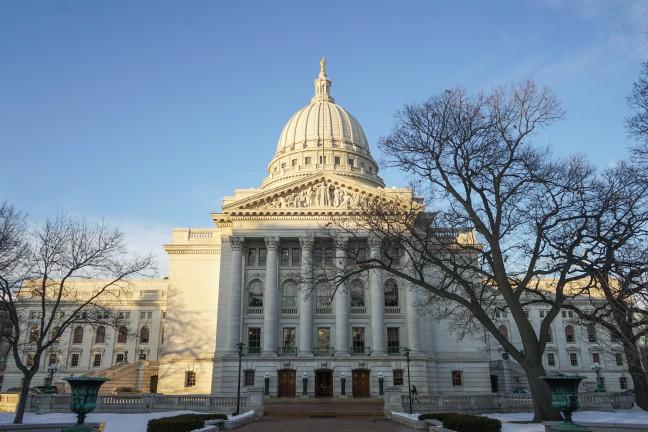The Wisconsin state Assembly session ended earlier this year than it has since 1970, resulting in late night sessions and a high number of bills being passed. Some say, however, the speed of the session cut the public’s voice out of the process.
Rep. Mark Spreitzer, D-Beloit, said more than 200 bills were pushed through the Assembly the week of Feb. 14, with some sessions going until 1 a.m. and 2 a.m.
Mark Sommerhauser, a reporter for the Wisconsin State Journal, said when there are more than 100 bills on the calendar, it’s challenging — even for reporters — to keep track of all of the bills that are being passed. He added Wisconsin residents don’t have eight to 10 hours a day to sift through legislation like reporters have to do full time.
“If it’s difficult for us as reporters, imagine how difficult it is for the public to try to keep up with what’s going on,” Sommerhauser said.
It’s typical for a large amount of bills to go through at the end of the session, but it’s unusual for the session to end so early, Rep. Chris Taylor, D-Madison, said. Spreitzer said he believes the reason is because it’s an election year, so lawmakers want more time to prepare for elections.
But Spreitzer said he thinks the high volume of bills that were pushed through the Legislature in marathon sessions cuts the public out of the legislative process.
Rep. Cody Horlacher, R-Mukwonago, acknowledged the end of the session “had a lot going on,” but said the public was still involved. He said public hearings were held to gauge the public’s opinion and all the information about a bill’s progress before it gets signed into law is available online at the Wisconsin Legislature’s website, he said. Additionally, all floor sessions are available for the public to watch on wiseye.org.
“I think it really gives a lot of power to the public to keep tabs on what we’re doing,” Horlacher said.
Even if all the bills didn’t get through the Legislature this session, Horlacher said those bills are now ready to go for next year’s session.
Horlacher said he also now has extra time to meet with constituents, do outreach in his district and work on future bills.
But Taylor said this session did not do anything for the people of Wisconsin. She pointed to the $250 million cut to the UW System, bills that “gut” environmental protections, lack of support for K-12 schools and the “transportation crisis.”
“It’s been a total failure of a session,” Taylor said.
Legislation would rewrite old water laws to increase waterfront property rights
$250 million cut to UW System remains as Assembly passes state budget
Despite Democrats’ disappointment with the end of the session, Horlacher said this year was a success. Ninety-four percent of the bills that passed through the Assembly passed on a bipartisan vote. Only 6 percent passed on party lines, Horlacher said.
The Assembly passed bills that supported Alzheimer’s and dementia research and treatment, reformed mental health, addressed human trafficking and domestic violence and exempted underage drinking tickets for victims of sexual assault, among others — all on bipartisan votes.
Assembly passes bipartisan bills addressing sexual assault, wrongly convicted criminals
The Assembly may get called back into session if the Senate adds amendments to bills. The Senate and Assembly have to pass the same version of a bill before it can be sent to Gov. Scott Walker’s desk to be signed into law. The Senate will hold their last session to take bills up for a vote March 15.
“We may not be done yet,” Horlacher said.

















